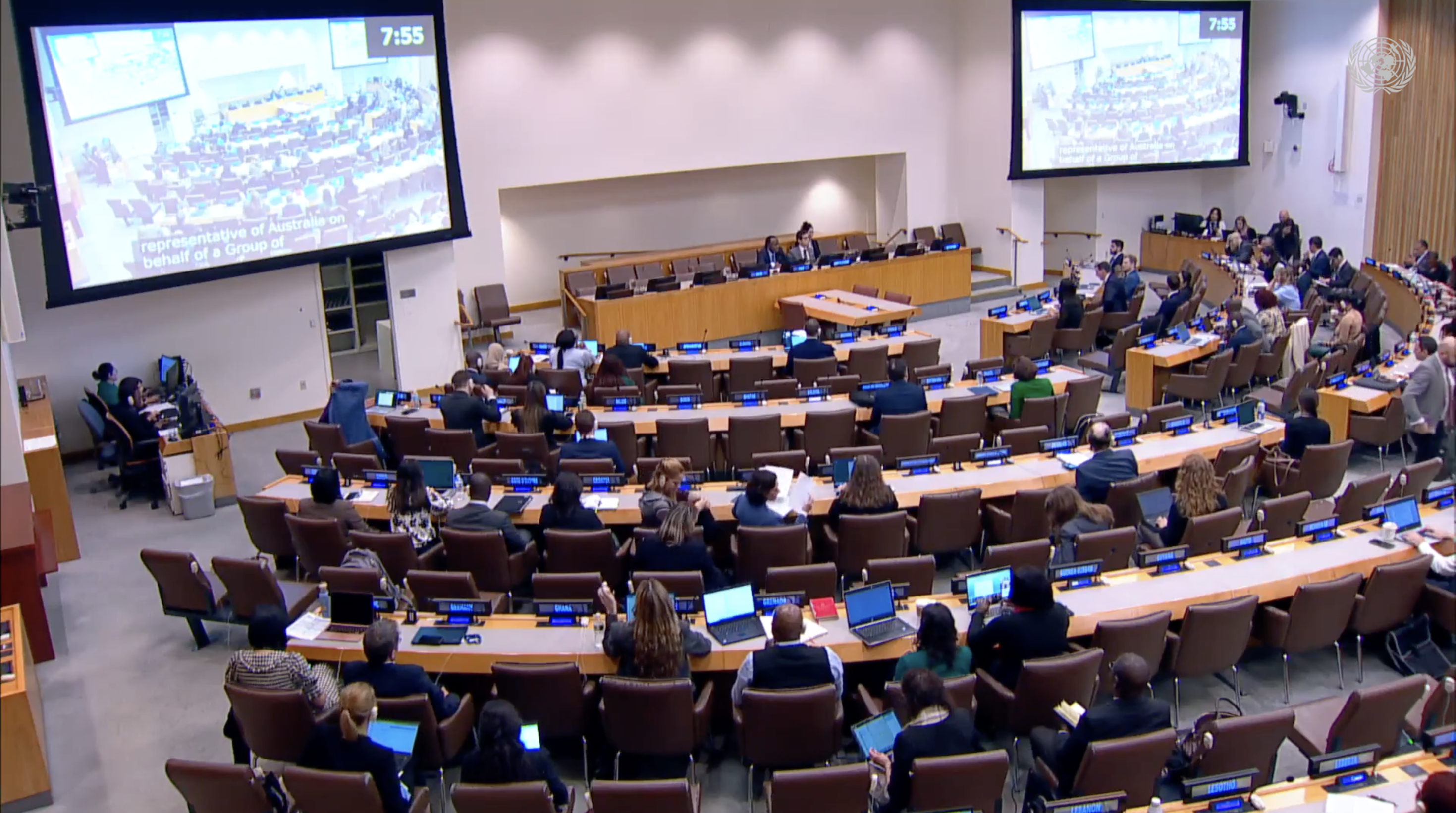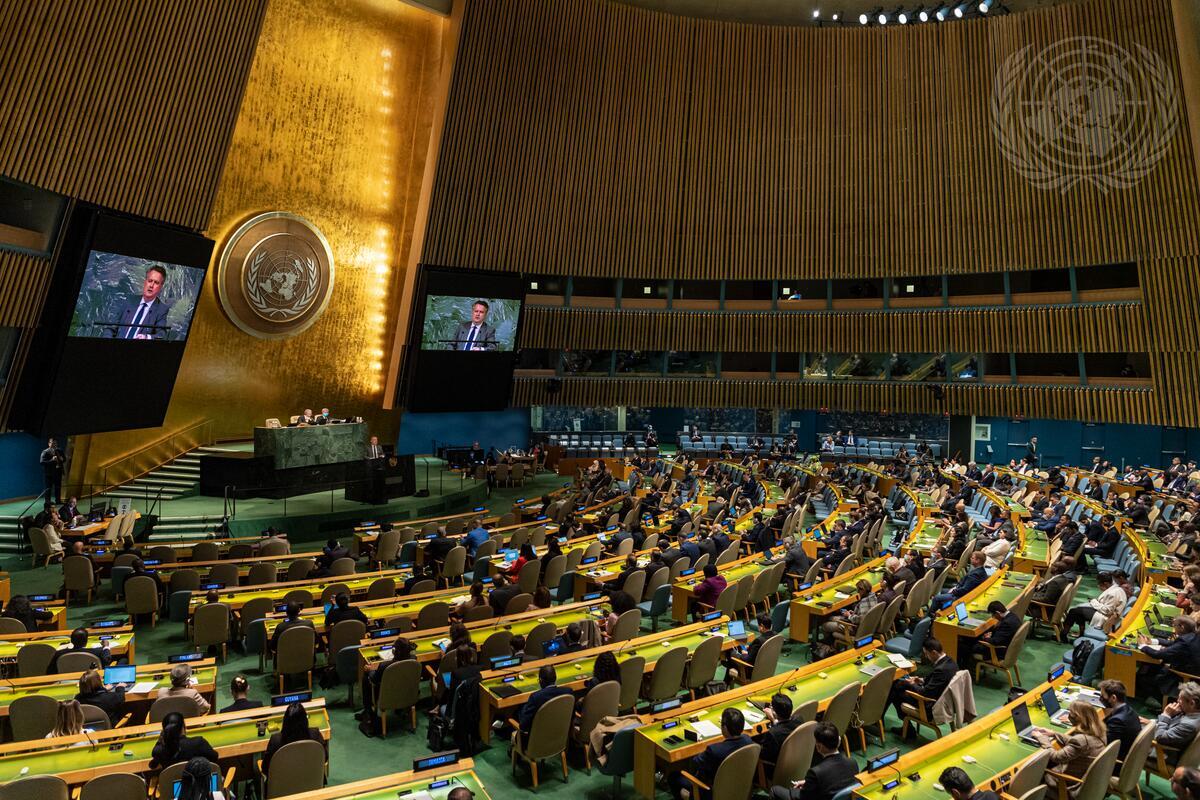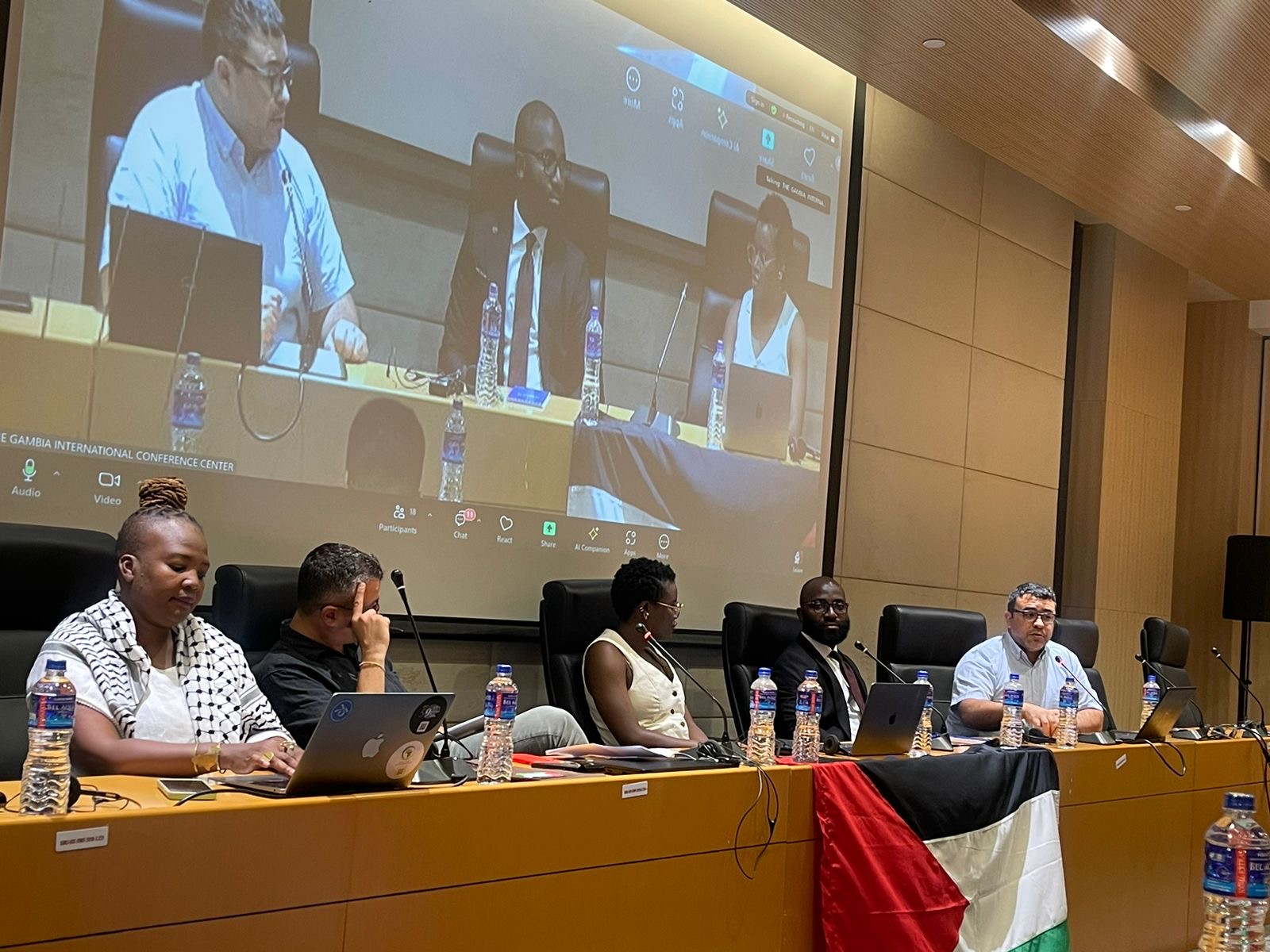On 19 September 2022, Ireland, on behalf of 80 countries, delivered a cross-regional statement condemning intimidation and reprisals, and calling on States to report any cases of reprisals, whether perpetrated by State or non-State actors, that occur within their countries.
Download as PDF
The joint statement is the fourth statement of its kind to be delivered at the UN General Assembly’s Third Committee, and followed the first introduction of the Secretary-General’s report on reprisals at the General Assembly on 14 October 2022.
The number of countries signing on has increased from 71 in 2019, 75 in 2020 to 80 in 2021 and 2022. Earlier this month, 25 NGOs, including ISHR, sent a letter to all Member States urging them to sign the statement.
The following States joined the statement this year: Afghanistan, Antigua and Barbuda, Albania, Andorra, Argentina, Australia, Austria, Bahamas, Belgium, Belize, Bosnia and Herzegovina, Bulgaria, Cabo Verde, Canada, Chile , Colombia, Costa Rica, Croatia, Cyprus, Czech Republic, Denmark, Dominican Republic, Ecuador, El Salvador, Estonia, Finland, Fiji, France, Georgia, Germany, Greece, Guatemala, Honduras, Hungary, Iceland, Ireland, Italy, Japan, Jordan, Kiribati, Latvia, Liberia, Liechtenstein, Lithuania, Luxembourg, Maldives, Malta, Marshall Islands, Mexico, Moldova, Monaco, Mongolia, Montenegro, Nauru, Netherlands, New Zealand, North Macedonia, Norway, Panama, Palau, Paraguay, Peru, Poland, Portugal, Republic of Korea, Romania, Samoa, San Marino, Slovakia, Slovenia, Spain, Sweden, Switzerland, Timor-Leste, Tunisia, Tuvalu, Ukraine, United Kingdom of Great Britain and Northern Ireland, United States of America, Uruguay, Vanuatu, The European Union.
By joining the statement, States have affirmed their commitment to the fundamental rights of freedom of expression and association. They also showed solidarity with human rights defenders, civil society actors and victims of violations worldwide, demonstrated their commitment to dialogue, cooperation and the institutional integrity of the UN, and they contributed to ensuring that UN bodies and processes are informed by, and respond effectively to, the needs of communities on the ground.
ISHR campaigned earlier this year to #EndReprisals, featuring individual cases of reprisals and calling on States to raise them at the 51st session of the Human Rights Council. Eight States raised individual cases of reprisals, including cases ISHR campaigned on.
“While we welcome the statement at the General Assembly and the support of signatory States, there is still a tremendous amount of work that needs to be done so that human right defenders and organisations can engage safely and effectively with the UN.” said Madeleine Sinclair, New York Office Co-director at ISHR. “It is disappointing that during the introduction of the annual report on reprisals at the General Assembly, not a single State referred to a specific case of reprisals. We will continue to call on States to to step up efforts to address reprisals, including by referring to specific cases during future dialogues at the UN”, added Sinclair.
Earlier this year, ISHR launched the #EndReprisal database, compiling all cases included in the reports of the UN Secretary-General since 2010. The database aims to make the navigation of the information contained in those reports easier, and enable users to research, analyse, and take action on cases or situations.




